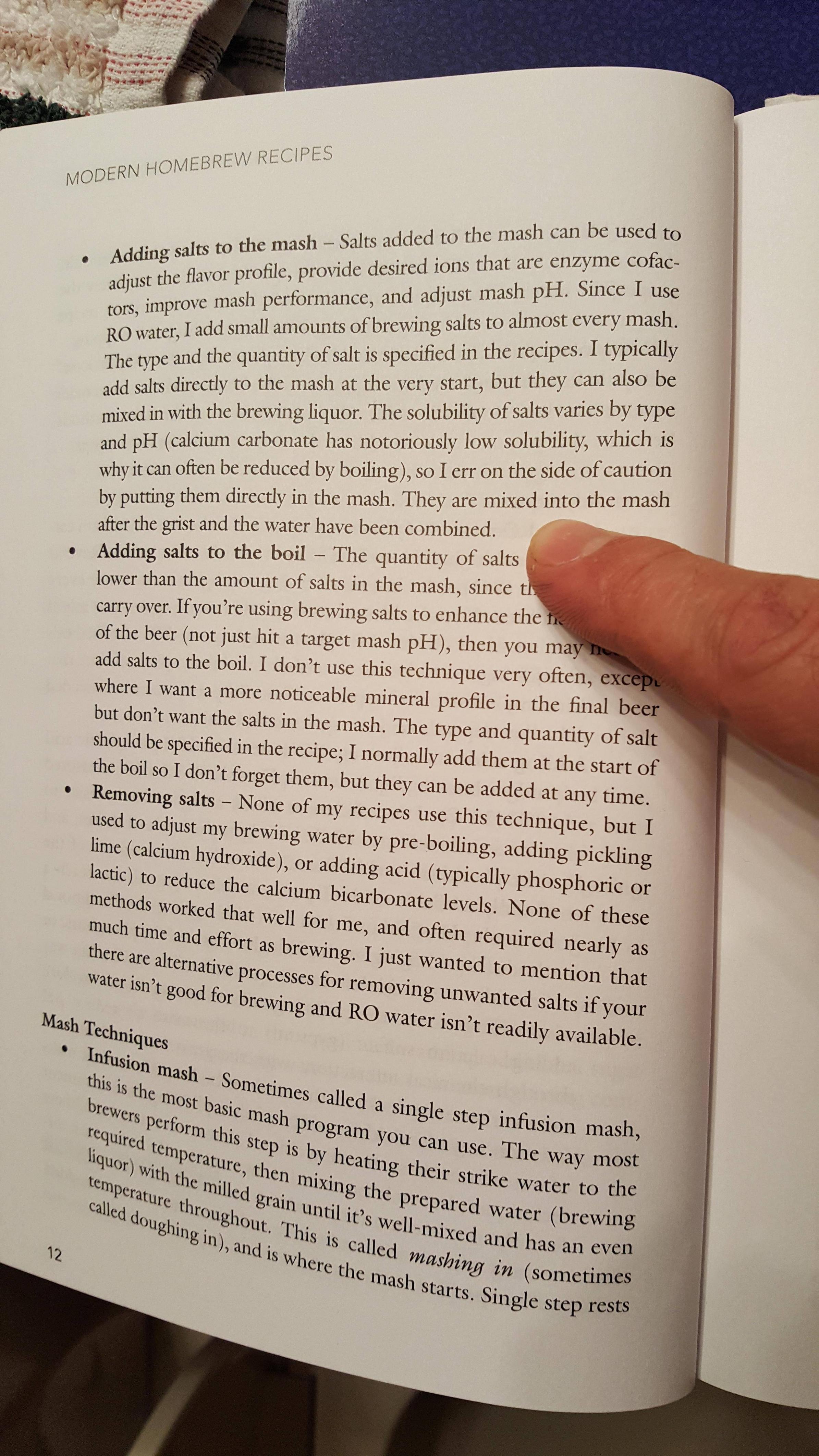jmitchell3
Well-Known Member
Ok, Water question. When should liquid acid (lactic or phosphoric) be added to the mash....prior to dough in and heating, after heating but prior to dough in, or after dough in?


+1^^^ this. If you wait until after dough in, it's highly unlikely you'll get complete distribution of the acid throughout your mash. As @Silver_Is_Money said, "why not just have everything added to the strike water in advance?" and make sure your additions are thoroughly mixed into the strike water before you add your grain. EdIf you understand your water profile and grain bill and you are making a repeat batch (or if you have high confidence in your mash pH regulating software when going into a first attempt at a recipe), why not just have everything added to the strike water in advance?

If you understand your water profile and grain bill and you are making a repeat batch (or if you have high confidence in your mash pH regulating software when going into a first attempt at a recipe), why not just have everything added to the strike water in advance?
your mash PH will be affected by the grains put in it, so add after about 10 or so minutes for a great result.
your mash PH will be affected by the grains put in it, so add after about 10 or so minutes for a great result.
That would be fine if the mash hadn't already started conversion and be well on its way before the 10 minutes. For people who get a good crush on the grain the conversion may well be more than half over in 10 minutes.
That would be fine if the mash hadn't already started conversion and be well on its way before the 10 minutes. For people who get a good crush on the grain the conversion may well be more than half over in 10 minutes.
I take it you dough in at conversion temperatures.
I dough in at 96 degrees F and do 3 other rest.
while doing a short rest a in the phytase zone is not going give much result, it gives me time to adjust before ramping up to the next rest.
Even then, If I just wanted to do a single rest infusion (IMHO why Bother) I would still wait until the grains were fully soaked and the mash was fully stable before trying to modify the PH.
Yes I do
I have 10 pounds of grain sitting in 18.75 quarts of water at 130 degrees and dump in 7.5 quarts at boiling, creating a mash at 152 degrees, where did I miss the starches for Alpha Amalase
You said "ramping up."
Unless you have some top notch repeatability and the same grain source water, etc. Won't the acid have to be adjusted after dough in? You can get close with calculators and experience, but won't it need a measurement and adjustment after the grain is added? The other salts should be able to be added ahead of time in the strike water.
When you try to modify your water properties, after cooling and taking a mash pH reading it's already too late. The best you could do in that situation is to take notes and apply them the next time you brew the same recipe.
I add acid (if needed, and ditto baking soda) to my strike water ahead of time, along with my chosen minerals.
Using RO water as a source I treat all of my brewing water at the same time, both the mash and sparge. I also wait 20-25 minutes after making adjustments before taking pH measurements, to allow the water, or mash, to reach equilibrium.
The mix of grains in your mash, and their DI pH values, interact with the strike water to change the pH of the mash. As an example, depending on the grain bill, I have measured a strike water pH of 4.75, which produced a mash pH of 5.39, after 20 minutes of mash time; sampled at 77F.
When you try to modify your water properties, after cooling and taking a mash pH reading it's already too late. The best you could do in that situation is to take notes and apply them the next time you brew the same recipe.
if starting with RO, i thought you should not be acidifying sparge water? or adding anything that increases alkalinity like chalk, lime, baking soda, etc to sparge water either?
or if you're using acid and any of those salts, do you then treat your mash and sparge water differently?
I don't Chase ph. I calculate my needs with Bru'n water, add salts to strike and sparge water and acid with acidulated malt. Then measure and tweak the next time (but I've been really close so no tweaks needed).
I prefer RO water to start. The tools out there did very well in that case in my experience.
have you ever measured pH to compare to brun'water guestimation? it's suprisingly accurate! (so far...)
i just recently purchased a pH meter and was very excited to test it out to two batches i was recently brewing. Both beers measured exactly where brun'water had calculated, about 15 mins into the mash. pretty impressive.
Enter your email address to join: